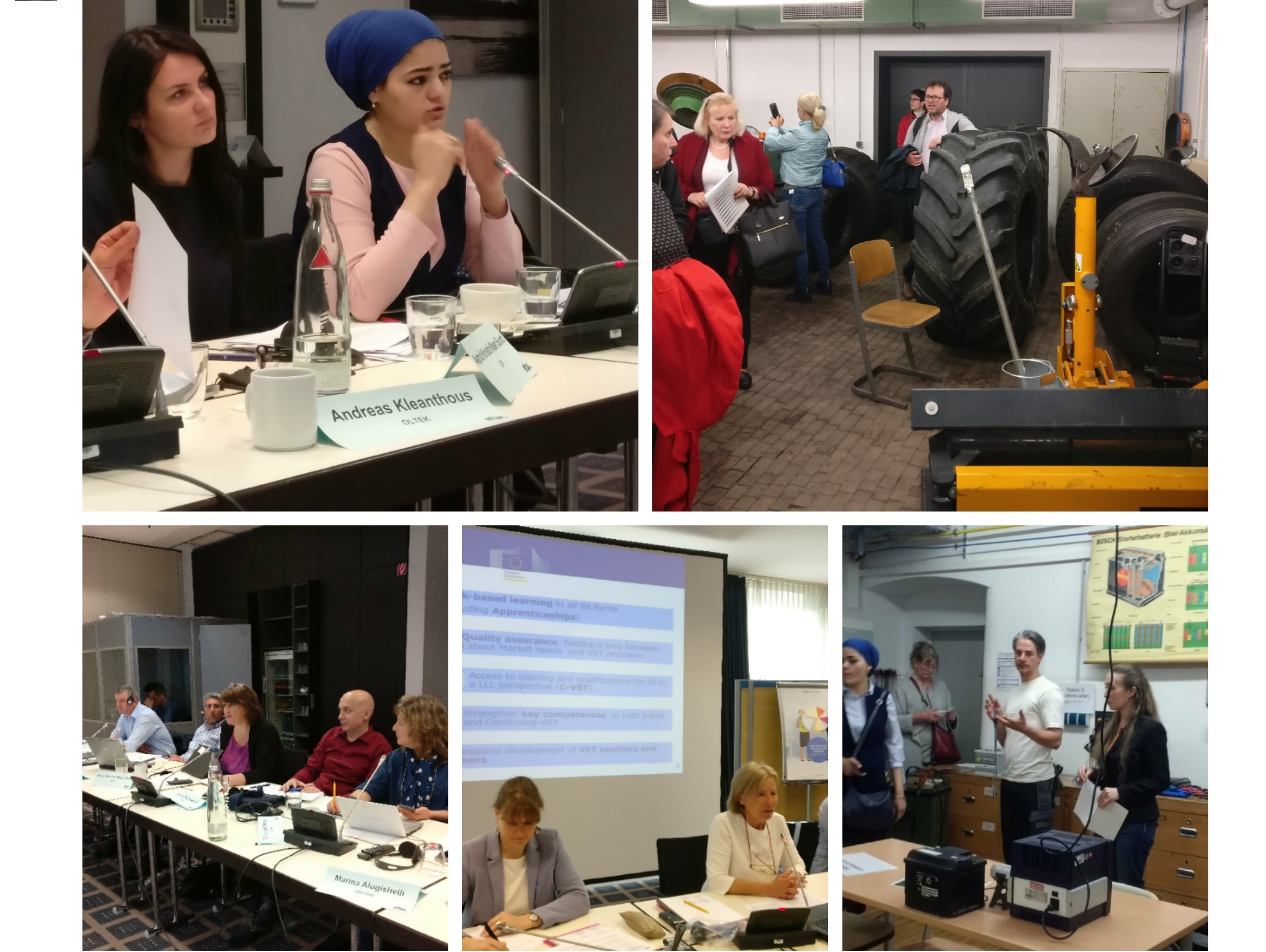Too many challenges prevail for teachers as regards high quality VET and apprenticeship
Published:
On 4-5 May 2017, 25 Vocational Education and Training (VET) experts of ETUCE’s member organisations from 20 European countries met in Munich for a training entitled ‘Improving skills provisions in VET’. This has been the 6th year that the joint training seminar has been organised for national VET experts of education trade unions supported by European Trade Union Institute. This year, many VET experts came not only from the EU/EFTA and candidate countries but also from the non-EU countries, such as Armenia, Georgia, Kazakhstan, Kosovo, Ukraine, and Tajikistan.
Training participants discussed new challenges that VET teachers and trainers face in VET and apprenticeship and focused on how to improve skills provision of students and teachers in all forms of VET. Concerning achieving high quality VET and apprenticeship the shared concerns of the education unions between the Caucasus and the English Channel are: low status of VET, insufficient investment to VET systems, low prestige of teachers, salary of teachers, lack or insufficient social dialogue.
From Albin Malureanu’s (GEW) presentation, VET experts learned about the German VET and apprenticeship system and challenges the teachers face nowadays. The participants visited Berufsschule für Fahrzeugtechnik - Eisenbahn – Fahrbetrieb, a school of the automotive sector that prepares truck engineers, vulcanisation experts, and railroad personnel. The director, Oberstudiendirektor Joe Lammers, explained the implementation of the dual apprenticeship system in Germany and the benefit of a fair, high quality and paid apprenticeship for the apprentices, companies and VET schools.
On the second day of the seminar, Ann Vanden Bulcke from the European Commission, presented recent EU policies influencing VET teachers and trainers regarding skills needed for integration of refugees and migrants, addressing the digitalisation, and meeting labour market skills. Training participants also had an opportunity to share and analyse good trade union practices in supporting VET teachers and addressing new challenges in the VET and apprenticeship system. Finland and the Netherlands, for example, shared their positive experience of combining vocational qualification programme for immigrant students with host country language acquisition, while Germany praised its pre-vocational integration schools where refugees learn German and other secondary school subjects at vocational schools for two years to be fully qualified to enter the VET dual system.